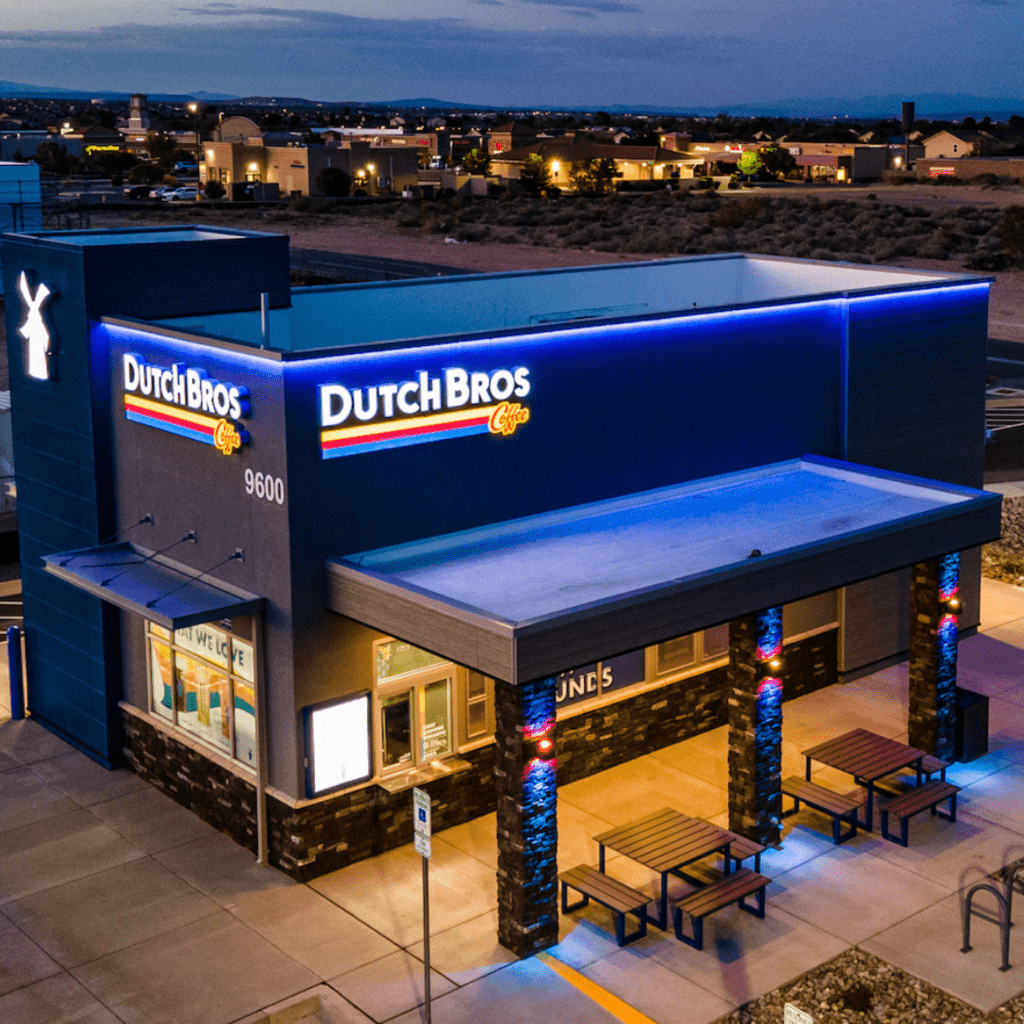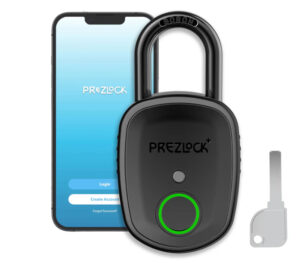Dutch Bros Coffee is one of the fastest-growing and most recognizable drive-thru coffee chains in the United States. What started as a small pushcart in Oregon has grown into a multi-billion-dollar business with a fiercely loyal customer base. Known for its vibrant culture, friendly service, and diverse menu, Dutch Bros has carved out a niche in the competitive coffee industry, challenging giants like Starbucks and Dunkin’.
This article explores Dutch Bros Coffee’s origins, its rise to prominence, current trends in its expansion and offerings, and the company’s prospects as it continues to burgeon.
Dutch Bros Coffee was founded in 1992 in Grants Pass, Oregon, by brothers Dane and Travis Boersma. Coming from a family with a dairy farming background, the Boersma brothers were looking for an alternative to the struggling dairy industry. With a borrowed espresso machine and a commitment to quality coffee, they set up a pushcart near the railroad tracks, serving coffee to their community.
From the beginning, the company prioritized customer service, creating a friendly and upbeat environment. Their philosophy was simple: serve great coffee with a smile and build relationships with customers. This grassroots approach set Dutch Bros apart from traditional coffee chains.
The Growth and Expansion of Dutch Bros Coffee
Dutch Bros’ growth strategy has been aggressive yet strategic, focusing on customer experience, franchise partnerships, and a unique branding approach.
Franchise-Driven Growth
Unlike some corporate-controlled chains, Dutch Bros followed a hybrid model where many locations were owned by former employees who had demonstrated a passion for the brand. This approach ensured that franchise owners were deeply invested in maintaining Dutch Bros’ culture and quality standards.
Franchisees were selected carefully, with the company emphasizing internal promotion. Employees had to work at Dutch Bros for a certain period before becoming eligible to open a franchise, reinforcing company loyalty and commitment.
By the early 2010s, Dutch Bros had expanded throughout the West Coast, opening locations in Washington, California, Idaho, and Arizona.
IPO and National Expansion
In 2021, Dutch Bros went public on the New York Stock Exchange under the ticker “BROS.” The IPO raised over $484 million, accelerating its nationwide expansion plans.
With fresh capital, Dutch Bros began an ambitious expansion strategy, targeting states beyond its traditional West Coast stronghold. It quickly moved into Texas, Oklahoma, Tennessee, and the Midwest, where its unique drive-thru model and energetic branding appealed to a younger demographic.
As of 2024, Dutch Bros operates over 800 locations across 16 states and aims to reach 4,000 stores in the next decade.
Current Trends: What Sets Dutch Bros Apart?
Unlike traditional coffee chains that focus on espresso-based beverages, Dutch Bros has built its reputation on a mix of coffee and non-coffee drinks, catering to a broad audience. Some key highlights include:
•Dutch Classics: Lattes, mochas, and breves with signature flavors.
•Rebel Energy Drinks: A proprietary energy drink base with customizable flavors, appealing to a younger audience.
•Frosts and Freezes: Milkshake-like drinks with bold flavors.
•Teas and Lemonades: Non-caffeinated options for wider appeal.
Dutch Bros is known for its customization, allowing customers to mix flavors, adjust sweetness levels, and create unique drinks. This personalization has fueled social media buzz, making Dutch Bros a viral sensation on platforms like TikTok and Instagram.
Drive-Thru and Speed Focus
Unlike Starbucks, which relies on a mix of in-store seating and mobile orders, Dutch Bros primarily operates drive-thru kiosks with limited or no indoor seating. This format maximizes efficiency and allows for rapid customer turnover, which is crucial in high-traffic areas.
Employees, known as “broistas,” take orders with iPads outside the drive-thru line, ensuring fast service and friendly interaction. The experience is designed to be upbeat, with music, high-energy staff, and a positive atmosphere.
Community and Culture
Dutch Bros has a unique company culture centered on positivity, engagement, and giving back. Some of its most notable community efforts include:
•Buck for Kids Day: A fundraising event where $1 from every drink sold goes to local children’s charities.
•Drink One for Dane: An annual event honoring co-founder Dane Boersma, who passed away from ALS. Proceeds support ALS research and treatment.
•Local Involvement: Many Dutch Bros locations engage in regional charity events, reinforcing their commitment to community values.
This emphasis on philanthropy and community involvement has endeared the brand to customers, making Dutch Bros more than just a coffee shop—it’s a movement.
Challenges and Competition
Despite its success, Dutch Bros faces several challenges as it continues to expand.
Competition from Industry Giants
Starbucks and Dunkin’ dominate the national coffee market, with well-established customer bases, mobile apps, and extensive store networks. While Dutch Bros has carved out a niche, it must continue innovating to maintain its momentum.
Labor and Retention Issues
As with many fast-growing companies, maintaining employee satisfaction and retention is crucial. Dutch Bros’ culture has been a major selling point, but as it expands, ensuring that new hires align with the brand’s values can be difficult.
Market Saturation Risks
Rapid expansion can sometimes lead to market oversaturation. If Dutch Bros grows too quickly in regions where demand is uncertain, it risks diluting its brand identity and profitability.
Economic Uncertainty and Pricing
With inflation and economic shifts, coffee chains must balance affordability with profitability. Dutch Bros’ ability to maintain competitive pricing while sustaining quality and experience will be a key factor in its continued success.
Future Prospects: What’s Next for Dutch Bros?
Looking ahead, Dutch Bros has several opportunities to solidify its position as a national powerhouse.
Expanding the Loyalty Program and Mobile App
Dutch Bros has made strides with its loyalty program, but enhancing its mobile app with more pre-ordering and rewards features could help it compete with Starbucks’ industry-leading mobile platform.
More Drive-Thru Innovation
With AI and automation becoming more common in the fast-food industry, Dutch Bros could integrate technology to enhance efficiency, reduce wait times, and improve the overall customer experience.
Geographic Expansion
Dutch Bros’ primary growth markets are currently in the western and southern U.S., but there is potential for expansion into the East Coast and international markets if the brand adapts to local tastes.
New Product Innovations
Introducing seasonal flavors, limited-time drinks, and healthier alternatives (such as plant-based options) could attract a broader audience and maintain customer excitement.
Dutch Bros Coffee’s journey from a small pushcart in Oregon to a billion-dollar brand is a testament to its customer-centric approach, innovative menu, and community-driven ethos. Its emphasis on speed, energy, and a unique coffee culture has differentiated it from industry giants like Starbucks and Dunkin’.
No comments yet.








